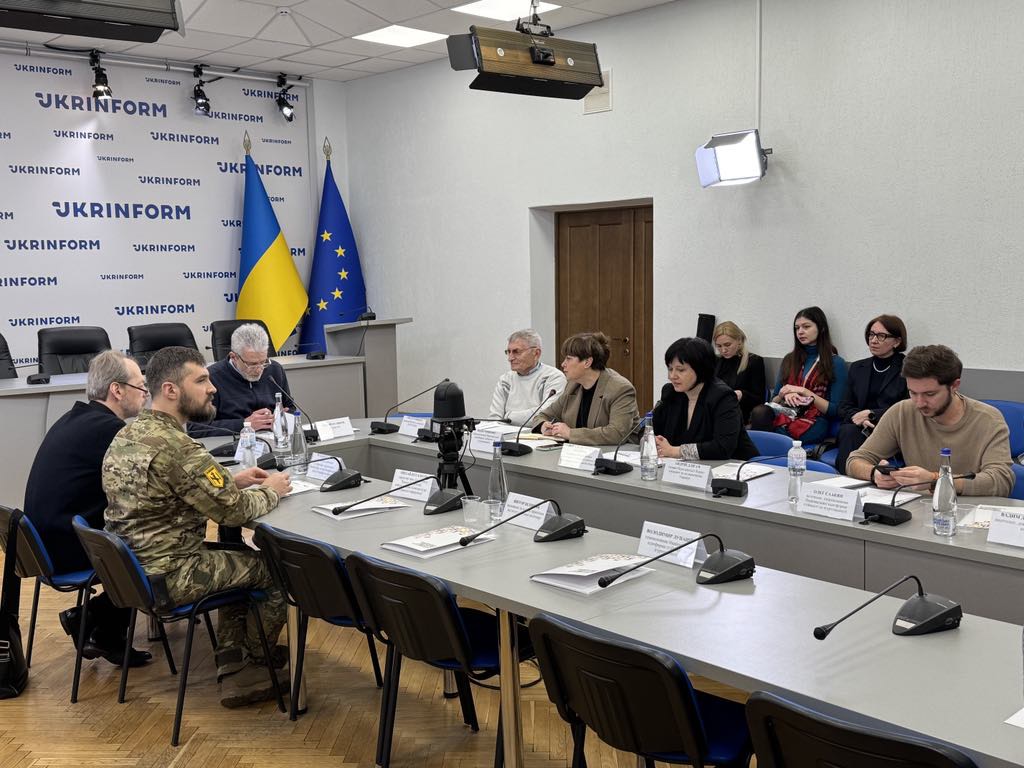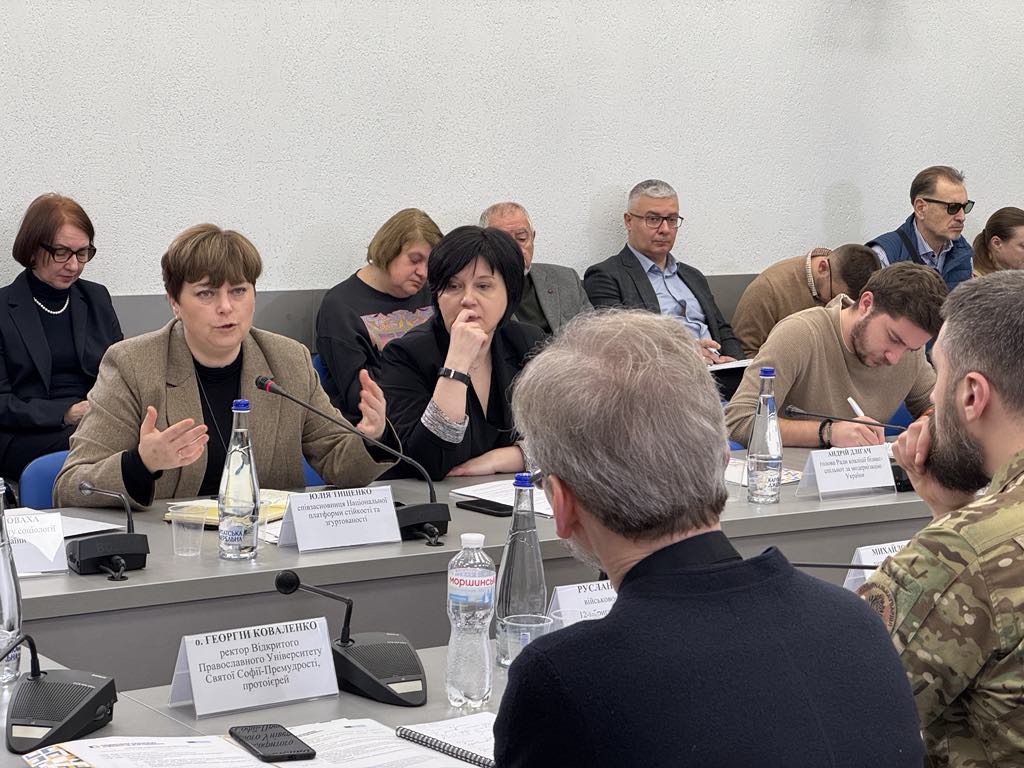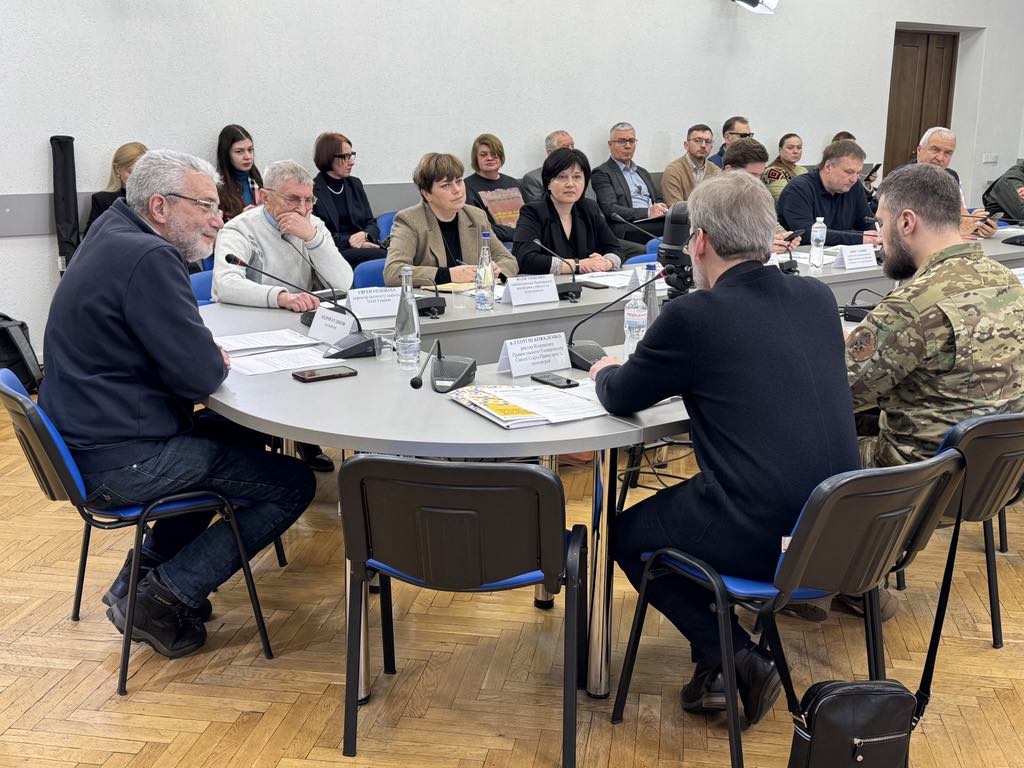Experts from the National Resilience and Cohesion Platform project and leading Ukrainian experts analyzed the challenges faced by Ukrainian society during the war.
During the public discussion "Difficult 2024 and Unpredictable 2025: Key Threats and Expectations," they examined how the ongoing Russian aggression, humanitarian challenges, and political turbulence in partner countries affect the resilience of Ukrainian society.

The participants discussed the following key issues:
- Which consequences of the war have the most significant impact on communities and social and humanitarian spheres?
- What is the attitude of Ukrainian society to the problems of war and peace?
- Where are the potential lines of social tension?
Volodymyr Lupatsiy, co-founder of the National Platform for Resilience and Cohesion, noted that one of Ukraine's main challenges in 2025 could be a governance crisis, which could be overcome in three scenarios.
"The key challenge of the year is the governance crisis because everything else flows from it. In terms of overcoming this crisis, there are three scenarios for 2025. The first scenario involves increased centralization. The second scenario is elections. The third scenario involves changing the governance structures without elections. This is the very management innovation that needs to be found, including by civil society representatives," Lupatsiy said.
In her turn, Yulia Tyshchenko, co-founder of the National Platform for Resilience and Cohesion, noted that in these circumstances, Ukraine must avoid destabilizing the situation inside the country.

"Ukraine needs a sustainable, just, and secure peace. This means that different decisions on peace in the external and internal political tracks do not destabilize Ukraine from within. The world pays a lot of attention to deterring the aggressor country. But recently, there have been discussions about what precedents could be in Europe and the world if certain peace decisions lead to internal destabilization. That is, undermining such things as social cohesion in Ukraine," Tyshchenko said.
She also stated that the newly created Ministry of National Unity should not lose the existing functions of the Ministry of Reintegration.

"So far, we know that the Ministry of National Unity was formed based on the Ministry of Reintegration, and it plans to focus on working with Ukrainians abroad. I think it is important not to throw the baby out with the bathwater in this process. The newly created agency should retain the existing functions of the Ministry of Reintegration while avoiding duplication of powers of other agencies that also work with citizens abroad," the expert added.
What moods prevail among Ukrainians?
Yevhen Holovakha, Director of the Institute of Sociology of the National Academy of Sciences of Ukraine, noted that the resilience of Ukrainians has hardly changed over the past two years.
According to research conducted by the Institute of Sociology of the National Academy of Sciences of Ukraine two years ago, almost 70% of Ukrainian citizens agreed to "endure problems as long as necessary for Ukraine's victory."
"According to our surveys, in 2022, 69% of citizens were ready to endure current and future problems as long as it takes to win. Only 4.6% were not ready. The rest were ready to endure for some time. In 2024, 43% are ready to endure as long as they want. Only 26% are ready to endure problems for a limited time. In 2024, 14% are not ready to tolerate anything. These changes occurred last year," said Holovakha.
The National Platform is implemented by the UCIPR and UHHRU within the framework of the project "Ensuring Ukraine's Resilience in the Context of Increasing Risks and Consequences of War" with the financial support of the European Union.
